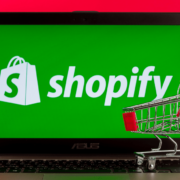Is Social Selling the Future of the eCommerce Industry?
Is Social Selling the Future of the eCommerce Industry?
The eCommerce industry was already widely popular among consumers, but the pandemic solidified its place in the retail industry, accelerating its growth. In fact, IBM’s report on the nationwide retail index emphasizes that the shift from physical stores to eCommerce was fast-tracked by roughly five years due to the pandemic. To illustrate, the consumers of department stores declined by around 60% last year, while 20% more individuals converted to online shopping.
But studies show an even more surprising trend in consumer behavior. Later’s ultimate guide to social selling revealed that social media platforms are integral in bringing in revenue for global retailers, brands, and even small businesses. In fact, reports believe that social commerce will make up 7.8% of all eCommerce sales by 2024. So if you’re an online seller, here’s what you need to know about the importance of social selling.
Why is Social Selling So Lucrative?
Social media platforms were originally developed to bring people together. But as both eCommerce and social media networks grew in popularity, companies saw an opportunity to combine both platforms. Case in point: Facebook Marketplace was created in 2016 as users were already forming and joining buy-and-sell groups on the platform. This marketplace made social selling easier since it allowed buyers and sellers to communicate through Facebook Messenger. Users could even provide ratings for sellers, which improves buyers’ confidence in their transactions. Moreover, consumers can use a wide variety of payment methods to complete the purchase.
This seamless process encouraged other social media platforms to accommodate social selling, as well. For instance, Instagram allowed influencers to provide a checkout option on their posts. Meanwhile, Snapchat has a shop button, so interested buyers can immediately purchase products advertised on the platform. These social media sites allow businesses to generate more sales with strategies, like influencer marketing and user-generated content marketing. As a result, online businesses are thriving because of social selling.
Is Social Selling the Future of eCommerce?
Due to its convenience, social selling is becoming an advantageous and profitable avenue for eCommerce retailers. Vidatec CEO Greig Johnston emphasizes that this is good news for retailers because consumers get the whole experience on social media. They can interact with sellers, buy products, and ask their questions — all on the same platform. Thus, social selling is a unique opportunity that business owners need to take advantage of.
However, South Coast Social founder Clare Groombridge warned that eCommerce sellers need to strike the right balance between all the online selling methods. Entrepreneurs must take into account their own brand’s objectives and products before plunging into different platforms. At times, forming a social selling platform and a business website is the ideal option, since it allows customers to reach the brand in multiple ways. Additionally, business owners should also consider the target market’s purchasing trends before investing in one platform. Overall, it isn’t enough to simply open multiple digital stores. Research is crucial to find the right mix of eCommerce platforms to improve business performance and boost sales.
Social selling is an integral facet of the eCommerce industry. This can open up plenty of opportunities for sellers. Business owners should consider their target market and brand to provide the best experience for their customers.


















Leave a Reply
Want to join the discussion?Feel free to contribute!